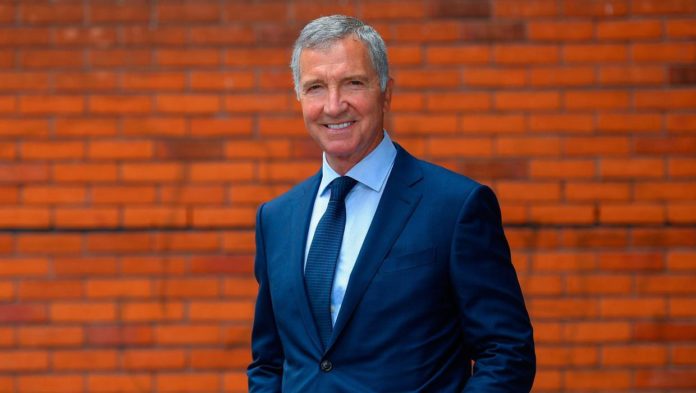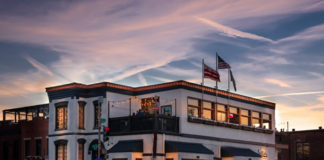Dublin Pride 2021 Festival continues all this month and, today in Tolka Park, Dublin Devils FC, an LGBT+ and inclusive team offering football from social kickabouts to competitive 11-a-side, will take on a Shelbourne legends side.
They are captained by Dubliner Adam Kane, a St Patrick’s Athletic fan from Drimnagh, whose experience, he feels, mirrors many in a community who feel marginalised from sport.
“The normative culture of established football clubs can make you feel isolated,” he explains ahead of the game being shown on Shelbourne’s YouTube channel. “These clubs exist to make us feel comfortable.”
Cork Rebels, Teach Solais in Galway and Belfast Blaze are also LGBT+ inclusive teams in Ireland. At once, it seems encouraging that they exist but also discouraging that society is set up in a way that they are needed in the first place.
Also as part of the month-long festival, Sporting Pride have been holding webinars on health and well-being and this week invited Sky Sports pundit and erstwhile Liverpool and Scotland legend Graeme Souness to speak.
In the course of a wide-ranging discussion, hosted by broadcaster Stephen Byrne, Souness shared his experience of growing up in dressing-rooms which hosted an often toxic environment but also his belief that one of soccer’s last taboos might finally break.
“I would have joined in the banter and said stupid things but I’d like to think all my contemporaries have changed. You grow up,” he says.
He thinks and hopes dressing-rooms have changed in terms of the colour of people’s skins or their sexuality and that there has been an attitudinal sea-change since his era, culminating in the decision of Justin Fashanu, the first high-profile footballer to publicly reveal his homosexuality in 1990.
Many fervently believe Fashanu’s spiralling personal and professional decline, culminating in his suicide, partly explains why nobody has followed in his footsteps, even though other team sports, and many individual sports, have seen similar high-profile males publicly acknowledge their sexuality.
Souness acknowledges that had one of his Liverpool colleagues had taken the same decision as Fashanu at the time, they would not have been accepted either.
“There must be lots of guys who would have loved to come out but wouldn’t feel in a comfortable space if they did so,” he says.
However, he does feel that opinions have changed since that time, with the renewed focus on mental health, and that if a high-profile player decided to reveal there were gay, there would be more acceptance.
“Team-mates would gather around him and be very supportive. But going to a hostile away ground would be a different situation.
“But he would have his team’s support and that wouldn’t have been the case when I was a player. There has to be players out there. But imagine a player saying it to his agent and then passing it on to the chief executive? They would panic a bit and it would come down to pounds, shillings and pence.
“The first thing the chief executive will think of is a marketing value, than sponsors in certain countries like the Middle East who might withdraw sponsorship. It’s terrible to say it but clubs would be thinking of the potential commercial damage.
“But on the other and the first player to come out would clean up.”
Although society may seem more prepared to accept gay footballers in the mainstream, as Souness highlights, with Irish society to the forefront, whether those in authority would be willing to do so remains moot.
The Dublin Devils were founded in 2005 primarily because there was a growing realisation that, even though football clubs were not necessarily overtly hostile to the LGBT+ community, nor were they overly welcoming.
“Why is it needed?” asks Kane of Dublin Devils FC? “It’s a safe place. A lot of gay people don’t get to the stage of being professional footballers.
“But I would still definitely say there are some who are gay or bisexual but not anything like one in ten.
“But it’s the fear drives people away from sport. It manifests itself in why we don’t have an out professional footballer.
“People who are gay rather go into individual sports, avoiding the hyper masculinity of team sports, with all the dressing-room ‘banter’, that word I hate. Not wanting to show any weakness.
“The normative culture of established football clubs can make you feel isolated. So these clubs our community have established exist to make us feel comfortable.
“We haven’t come across anything bad verbally when we’re playing other teams but there is a layer of opponents feeling like they shouldn’t be losing to a team like ‘us’, more than just being annoyed at losing.”
The FAI are working on proposals to advance inclusivity as a core protocol. It does also seem there is an obvious gender issue at play; Ireland’s women’s football captain, Katie McCabe, is gay and her partner Ruesha Littlejohn, is her partner.
In rugby and GAA, too, there are high-profile female homosexuals; ironically, the less intense focus on female sports may provide more accommodation.
But, aside from GAA referee David Gough, male homosexuality in Irish sport seems to be the last taboo.
“There’s still a perception that it’s something bad,” says Kane. “It’s the environment. Maybe there’s more empathy amongst women.
“If a player did come It would make you feel valid and that your place on a team was justified. The discomfort would be set aside and you could have a role mode to look up to.
“And if it were the result of inclusive policies it would be hugely significant. Hopefully it can happen while I’m still playing.”
Until then, Ireland’s male homosexual sportsman will remain on the margins.








